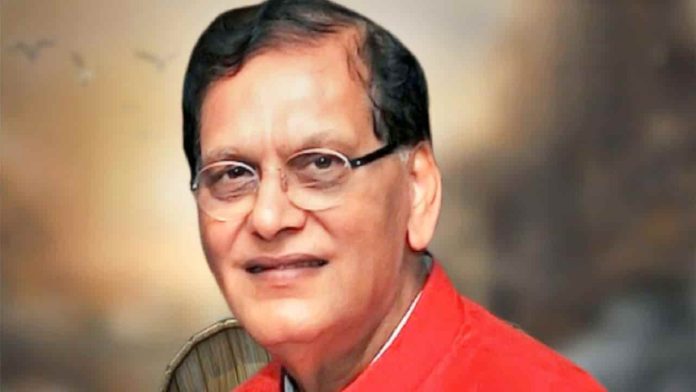By India Legal Bureau
On India’s 77th Independence Day, the country lost a very special social activist who fought for the rights of people at the very bottom of the social pyramid. At about 1.30 pm that day, Sulabh International founder and social activist Bindeshwar Pathak died of a cardiac arrest, while attending a flag-hoisting ceremony at the Sulabh complex at Palam-Dabri Road, New Delhi. He was 80 and is survived by wife Amola, two daughters and a son.
He was rushed to AIIMS where doctors pronounced him dead. A spokesperson of the hospital said that Pathak had complained of uneasiness and pain in his chest during the ceremony. He was being brought to AIIMS emergency in Delhi when he suffered a fatal cardiac arrest.
Everybody from every strata of life mourned his death. Prime Minister Narendra Modi, taking to X (formerly Twitter), said: “Bindeshwar Ji made it his mission to build a cleaner India. He provided monumental support to the Swachh Bharat Mission. During our various conversations, his passion towards Swachhata was always visible.”
News of Pathak’s great work spread beyond the boundaries of India. In 2016, New York City declared April 14 as Bindeshwar Pathak Day in recognition of the contributions made by the activist for improving the lives of people engaged in the “most dehumanising situation”.
The activist was not just committed to designing and installing new type of toilets. Sulabh International, the social service organisation led by Pathak, worked in promoting human rights in general and specifically for the downtrodden, those who history has treated badly.
Pathak took up specific issues, such as environmental sanitation, waste management and reforms and tried to find solutions through education and active participation. The organisation has not only constructed over 1.3 million household toilets and over 50 million government toilets based on an innovative design, it has also seen to it that the horrible practice of manual scavenging, carried out by people who were unfortunate to have been born of a lower caste, get a way towards rehabilitation.
In November 2016, the Indian Railways joined hands with Sulabh and appointed Pathak as the brand ambassador of Swachh Rail Mission, stepping up its efforts to keep railway premises spotless.
Pathak was born at Rampur Baghel village in Bihar’s Vaishali district. He started his Sulabh movement in 1970 and dedicated his life to eradicating manual scavenging as well as in spreading awareness on sanitation.
He himself designed and popularised the low-cost twin-pit flush toilets, now widely constructed under the government’s Swachh Bharat Mission.
He started small, building his first public toilet in Arrah, Bihar, with the help of a municipality official who had given him Rs 500 to construct two toilets for demonstration in the municipality premises in 1973. After the success of this initiative, the authorities sanctioned a project for its wider implementation.
In 1974, the first Sulabh public toilet—with 48 seats, 20 bathrooms, urinals and washbasins—was opened in Patna.
Pathak did his schooling at his village before graduating in Sociology from BN College, Patna. He wanted to study criminology from Sagar University in Madhya Pradesh, but before that he joined Gandhi Centenary Committee in Patna as a volunteer. The Committee sent him to work for restoration of human rights and dignity of people from the Dalit community in Bihar’s Bettiah. From there, he took a resolve to start a mission to eradicate manual scavenging and open defecation—a common phenomenon at the time.
In 1974, the Bihar government sent a circular to all local bodies to take Sulabh’s help to convert bucket toilets into two-pit pour-flush toilets, and by 1980, 25,000 people were using Sulabh public facilities in Patna alone.
Pathak’s efforts were soon featured in the international press.
In 1991, he was awarded the Padma Bhushan for his work on liberating and rehabilitating manual scavengers and received the International St Francis Prize for Environment the following year.
In 2009, Pathak won the Stockholm Water Prize, conferred by the Royal Swedish Academy of Sciences. In 2012, he undertook a philanthropic mission at the behest of the Supreme Court to work towards welfare of widows of Vrindavan. He started by giving a monthly stipend of Rs 2,000 to each widow.
In 2016, Sulabh was awarded the Gandhi Peace Prize for its contribution to the government’s flagship Swachh Bharat mission.
Expressing condolences, President Droupadi Murmu said Pathak had taken a “revolutionary” initiative in the field of cleanliness. “He was honoured with many awards, including Padma Bhushan. I express my condolences to his family and members of Sulabh International,” she tweeted.
Vice President Jagdeep Dhankhar posted on a social media site: “Deeply anguished…. His relentless dedication to eradicating manual scavenging and advancing sanitation has uplifted countless lives. My thoughts and prayers are with his bereaved family…”.


